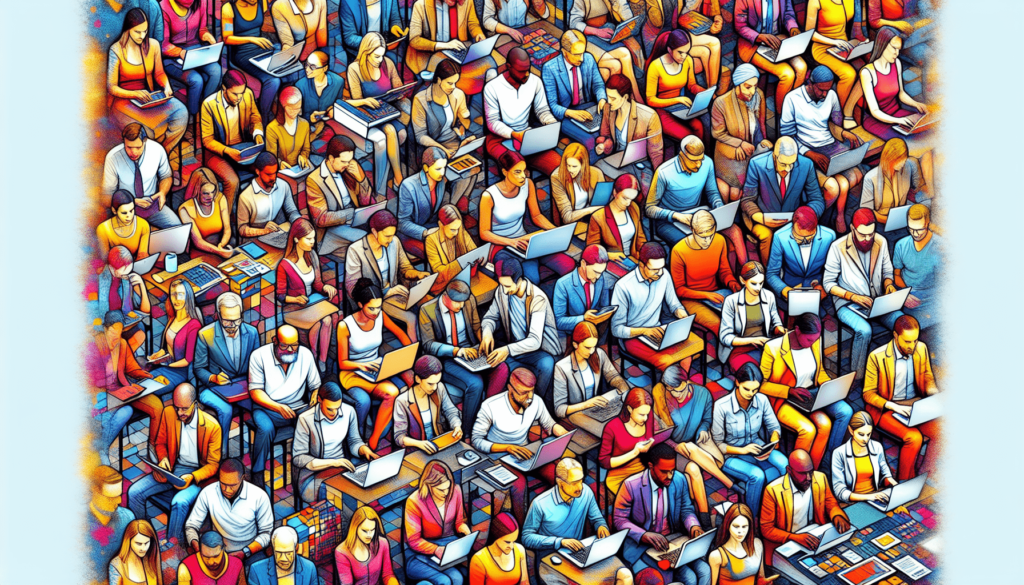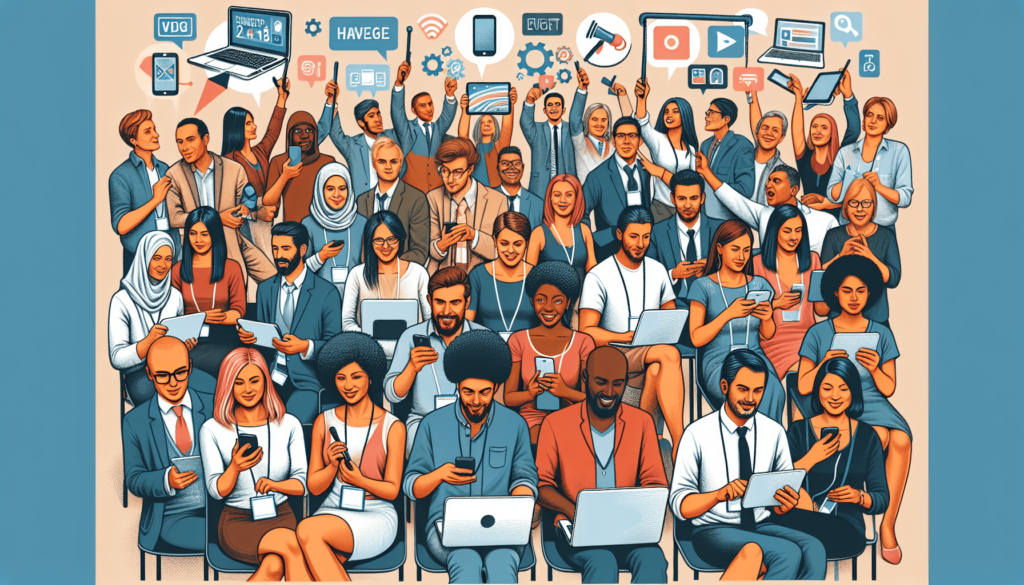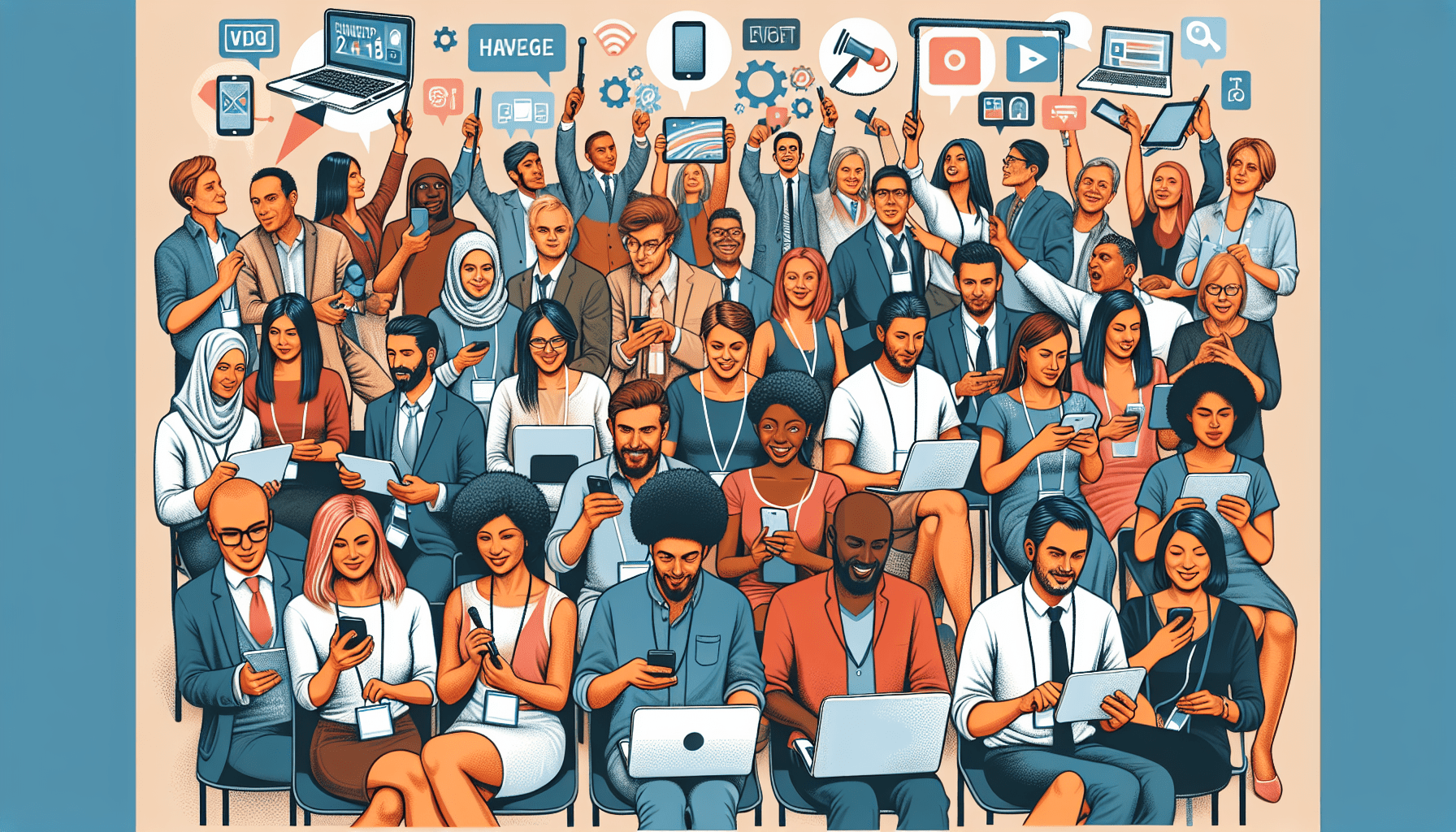How To Leverage Digital Tools For Event Marketing
Have you ever wondered how digital tools can revolutionize your event marketing strategies? In this comprehensive guide, we will explore the various ways you can utilize digital tools to maximize your event’s reach and engagement. From social media platforms to email marketing campaigns, we will delve into the most effective techniques to boost attendance and create a memorable experience for your audience.

Understanding the Role of Digital Tools in Event Marketing
Before we dive into the specific digital tools available for event marketing, it’s crucial to understand their role in your overall strategy. Digital tools are designed to streamline communication, increase visibility, and enhance audience engagement before, during, and after your event. By leveraging these tools effectively, you can not only attract a larger audience but also build lasting relationships with your attendees.
Enhancing Communication with Attendees
One of the most significant benefits of digital tools in event marketing is their ability to facilitate seamless communication with your attendees. Whether it’s sending out event updates, responding to inquiries, or collecting feedback, digital tools like email marketing platforms and social media channels allow you to stay connected with your audience in real-time. By keeping your attendees informed and engaged, you can create a sense of anticipation and excitement leading up to your event.
Increasing Visibility and Reach
In today’s digital age, having a strong online presence is essential for the success of any event. Digital tools such as social media advertising, search engine optimization (SEO), and content marketing can help increase your event’s visibility and reach to a broader audience. By optimizing your online content and utilizing targeted advertising strategies, you can attract more attendees and generate buzz around your event.
Enhancing Audience Engagement
Engaging your audience before, during, and after your event is key to creating a memorable experience and building brand loyalty. Digital tools like live streaming, interactive event apps, and virtual reality experiences can enhance audience engagement and encourage participation. By incorporating these technologies into your event marketing strategy, you can create a unique and immersive experience that will leave a lasting impression on your attendees.
Leveraging Social Media Platforms for Event Marketing
Social media platforms have become indispensable tools for event marketers looking to connect with their target audience and promote their events effectively. With billions of active users worldwide, platforms like Facebook, Instagram, Twitter, and LinkedIn offer a wide range of features and advertising options to help you reach your desired audience and drive engagement.
Choosing the Right Platform for Your Event
When it comes to leveraging social media for event marketing, choosing the right platform is crucial to reach and engage your target audience effectively. Consider the demographics of your attendees, the type of content you plan to share, and your marketing objectives when selecting the platforms that align with your goals. For example, if you’re targeting a younger audience, platforms like Instagram and Snapchat may be more suitable, while LinkedIn is ideal for B2B events targeting professionals.
Creating Compelling Content
Creating compelling content is essential to capture the attention of your audience and drive engagement on social media. From eye-catching visuals to engaging videos and informative posts, make sure your content is tailored to resonate with your target audience and align with your event’s messaging. Utilize features like live streaming, stories, and polls to create interactive experiences that encourage participation and generate excitement leading up to your event.
Utilizing Paid Advertising
Paid advertising on social media platforms can help amplify your event marketing efforts and reach a larger audience effectively. By utilizing targeted advertising options like sponsored posts, carousel ads, and video ads, you can tailor your message to specific demographics, interests, and behaviors to attract potential attendees. Set clear objectives for your advertising campaigns and track key performance metrics to optimize your budget and maximize ROI.
Implementing Email Marketing Campaigns for Event Promotion
Email marketing remains one of the most effective tools for event promotion, allowing you to communicate directly with your audience and drive ticket sales and registrations. With high open and click-through rates, personalized messaging, and automation features, email marketing campaigns can help you build anticipation, generate excitement, and nurture relationships with your attendees.
Building a Subscriber List
Building a robust subscriber list is the first step towards implementing successful email marketing campaigns for event promotion. Encourage website visitors, social media followers, and event attendees to subscribe to your mailing list by offering exclusive content, discounts, or early access to event information. Segment your subscribers based on their interests and engagement levels to tailor your email content and maximize conversion rates.
Creating Engaging Email Content
Creating engaging email content is crucial to capturing the attention of your subscribers and driving conversions for your event. From personalized invitations and event announcements to countdowns, sneak peeks, and exclusive offers, make sure your emails are relevant, visually appealing, and compelling. Utilize eye-catching visuals, clear calls-to-action, and mobile-responsive designs to optimize engagement and ensure a seamless user experience.
Leveraging Automation and Personalization
Automation and personalization are key components of successful email marketing campaigns for event promotion. Utilize automation tools to schedule and send targeted emails at the right time, track user behavior, and follow up with personalized messages based on subscriber interactions. By personalizing your emails with dynamic content, personalized recommendations, and tailored messaging, you can create a personalized experience that resonates with your audience and drives conversions.
Enhancing Attendee Experience with Event Apps and Virtual Reality
In the digital age, enhancing attendee experience with innovative technologies like event apps and virtual reality can set your events apart and create a memorable and immersive experience for your attendees. From interactive agendas and networking features to virtual tours and immersive experiences, leveraging these digital tools can take your event marketing to the next level and leave a lasting impression on your audience.
Implementing Interactive Event Apps
Interactive event apps are powerful tools for enhancing attendee engagement, facilitating networking opportunities, and providing valuable information and resources to your audience. Consider investing in a custom event app that offers personalized schedules, interactive maps, attendee profiles, live polling, and messaging features to enrich the attendee experience. Encourage attendees to download and use the app before and during the event to maximize engagement and participation.
Creating Virtual Reality Experiences
Virtual reality (VR) offers a unique opportunity to transport your attendees to immersive and interactive environments, allowing them to experience your event in a whole new way. From virtual tours and product demos to interactive games and storytelling experiences, VR can enhance engagement, create memorable moments, and showcase your brand in a creative and innovative light. Consider incorporating VR experiences into your event marketing strategy to captivate your audience and leave a lasting impression.
Providing Augmented Reality Experiences
Augmented reality (AR) is another cutting-edge technology that can enhance the attendee experience and create interactive and engaging moments at your event. From AR-enhanced signage and scavenger hunts to interactive demos and photo opportunities, AR can bring your event to life and encourage participation and social sharing. By leveraging AR technology, you can create a dynamic and interactive experience that will captivate your audience and differentiate your event from competitors.

Measuring Success and Optimizing Your Event Marketing Strategy
After implementing digital tools in your event marketing strategy, it’s important to measure the success of your efforts and optimize your campaigns for better results in the future. By tracking key performance indicators (KPIs), analyzing data, and gathering feedback from attendees, you can gain valuable insights into what works well and what areas need improvement to refine your event marketing strategy and achieve your goals.
Tracking Key Performance Indicators (KPIs)
Tracking key performance indicators (KPIs) is essential to measure the success of your event marketing efforts and evaluate the impact of digital tools on your campaigns. Monitor metrics like ticket sales, registrations, website traffic, social media engagement, email open rates, and conversion rates to gauge the effectiveness of your strategies and identify areas for improvement. Set specific KPIs for each digital tool you’re using and track progress to optimize your campaigns and maximize ROI.
Analyzing Data and Gathering Feedback
Analyzing data and gathering feedback from attendees is critical to understanding their preferences, interests, and satisfaction levels with your event. Collect post-event surveys, social media comments, and email responses to gather insights into what worked well and what can be improved for future events. Use this feedback to fine-tune your event marketing strategy, personalize your communications, and address any pain points or areas of improvement to enhance the attendee experience and build brand loyalty.
Optimizing Your Event Marketing Strategy
Optimizing your event marketing strategy based on insights and feedback is key to driving continuous improvement and achieving better results with each event. Experiment with new digital tools, test different messaging and content formats, and iterate on your campaigns to optimize performance and enhance engagement. Stay up-to-date with industry trends, monitor competitors, and adapt your strategies to meet changing audience preferences and market dynamics. By continuously optimizing your event marketing efforts, you can stay ahead of the curve and deliver memorable experiences that leave a lasting impact on your attendees.
In conclusion, leveraging digital tools for event marketing can transform the way you promote and host events, allowing you to connect with your audience, drive engagement, and create memorable experiences that resonate with attendees. By understanding the role of digital tools in your overall strategy, choosing the right platforms, creating engaging content, and measuring success, you can optimize your event marketing efforts and achieve your goals effectively. Embrace the power of digital tools to elevate your event marketing strategy and stand out in a competitive landscape, leaving a lasting impression on your attendees and building lasting relationships with your audience.

